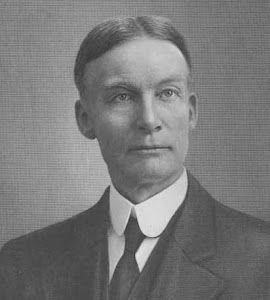I did policy debate in high school and a little bit in college. The activity – at least when I was doing it – rested on the ability to organize and present evidence for and against different arguments. We referred to this evidence as “cards.” In the 1970’s quotations from newspapers and journals were physically cut out of a photocopy of the original and taped to an index card. By the time I was involved in the activity, we would put 3-5 “cards” – or bits of evidence – on standard sized paper. Now, I assume, a lot of debate evidence is kept on laptops.
Last year when I delivered my presentation on gender, socialization, and the dearth of women in the top positions in science and math I felt a little bit like I was in a debate round, reading through my cards. I had so many quotations I wanted to share, but there was simply too much text on the PowerPoint slides and too much on-screen reading required of the students.
Today, I’m going to try to use few slides, but I want to make the information available to pursue at your leisure. Please note that many of these quotations are taken from the popular press (Time and New York Times). They refer to actual studies and experiences, but more persuasive evidence will be found in the actual studies themselves (appearing in specialized sociology and education journals).
So, here are the gender “cards” from last year. Please don’t challenge me to a debate – although I still get an occasional “talks too fast” on my course evaluations, I’m certainly out-of-practice for the oratorical rigors of academic debate!
Differential Access and Support Explains Sex Differences in Science and Math
“Measures of gender differences in such areas as verbal, mathematical, and spatial abilities have changed over time showing virtually no differences at the present time. While contestations remain in the research over explanations for the source of any differences in performance, the far greater explanatory power lies in differential access and support.” (Statement of the American Sociological Association Council on the Causes of Gender Differences in Science and Math Career Achievement: Harvard’s Lawrence Summers and the Ensuing Public Debate February 28, 2005)
Assumptions and stereotypes explain sex differences, not innate ability
Studies show that social and cultural assumptions and stereotypes about differences in women's and men's abilities are the cause of noticeable differences in their interests and performance. Not surprisingly, therefore, such assumptions also have a larger impact on judgments about people's potential job performance and success.
. . .
Studies also show that peer pressures to conform to stereotypical behavior and exposure to popular media affect women’s and men’s choices and opportunities in the occupational world. These changeable social factors, not innate biological differences, provide the most powerful explanation for the continuing gap between women's abilities and their occupational attainments.
(Statement of the American Sociological Association Council on the Causes of Gender Differences in Science and Math Career Achievement: Harvard’s Lawrence Summers and the Ensuing Public Debate February 28, 2005)
Decades of research point to social structure – not innate biological differences – as the key explanatory variable accounting for sex differences in math and science
Sociological research provides ample empirical evidence of the importance of social phenomena in creating the gender gap in science and math achievement at the highest levels and, therefore, why it is a social problem. . . . . As real structural opportunities have opened to women, as a result of legal challenges and other social pressures for change, they have demonstrated increased interest in, and rapidly joined, fields from which they had been excluded.
Decades of social-scientific research provide a solid base of empirical knowledge about the power of unequal opportunities, limitations in access to formal and informal training, a lack of social and domestic supports, and lowered expectations about women's capacity to achieve that sap their educational and professional confidence. (Statement of the American Sociological Association Council on the Causes of Gender Differences in Science and Math Career Achievement: Harvard’s Lawrence Summers and the Ensuing Public Debate February 28, 2005)
Cross-Cultural Evidence Supports Social Explanations for Sex-Differences in Science Performance
“One of the sharpest retorts to Summers comes from a man, Burton Richter, a Nobel Prize winner and former director of the Stanford Linear Accelerator Center, who notes that in 2003-04, girls in England ‘Presidents of universities,’ Richter snapped, ‘should not use their mouths before their brains.’” (Keay Davidson, The San Francisco Chronicle, “Harvard President Under Microscope,” January 31, 2005, A4.) outperformed boys in the highest levels of math and physics tests.
Group Abilities Change Over Time
“Critics say Summers ignored overwhelming evidence that such difficulties are caused by social factors. . . They note that boys’ and girls’ average test scores are the same, and that gender differences in scores have converged over the past few decades -- a convergence that no one suggests is due to a sudden transmutation of women’s DNA.”
(Keay Davidson, The San Francisco Chronicle, “Harvard President Under Microscope,” January 31, 2005, A4.)
Gender Socialization Shapes Math Education
“But there are other possibilities [for the relative dearth of women in top science positions] we should consider first. One of them is the damage done by the idea that there is something wrong about a girl or woman who is really good at math.
(Cornelia Dean, “For Some Girls, the Problem With Math Is that They’re Good at It.” New York Times, Feb. 1, 2005, pg. 3.)
Women are Discouraged from Math Education
I first encountered this thinking as a seventh grader who was scarred for life when my class in an experimental state school for brainiacs was given a mathematics aptitude test. The results were posted and everyone found out I had scored several years ahead of the next brightest kid. A girl really good in math! What a freak! I resolved then and there on a career in journalism.”
Cornelia Dean, “For Some Girls, the Problem With Math Is that They’re Good at It.” New York Times, Feb. 1, 2005, pg. 3.
Saying Girls are Bad at Math Creates a Self-Fulfilling Prophecy
“She [3rd grade daughter] came home and said to me, ‘I can’t do math.’ So I told her, ‘Sorry, but no daughter of mine is allowed to say that.’ We looked at her problems and she became thrilled to see that she could do them. Now imagine what might have happened if I had agreed with her, and said, ‘Yes, girls intrinsically aren’t very good at math.’ (Astrophysicist Wendy Freedman quoted in Cornelia Dean, “For Some Girls, the Problem With Math Is that They’re Good at It.” New York Times, Feb. 1, 2005, pg. 3.)
An Example of Discrimination & Social Closure
Lillian Pierce was Princeton’s valedictorian when she graduated in 2002 and received her master's in math from
Barbara Kantrowitz, “Sex and Science” Newsweek, Jan 31, 2005, pg. 36
An Example of Discrimination & Social Closure
She says too many of her female friends “drop out of graduate programs simply because they’re disillusioned with the environment, not because they can't handle the math.”
Barbara Kantrowitz, “Sex and Science” Newsweek, Jan 31, 2005, pg. 36
A Final Example of Discrimination & Social Closure
“Another friend, graduating as a math major, was advised not to bother applying for a graduate research assistantship because they were not given to women. She eventually earned a doctorate in math, but one of her early forays into the job market ended abruptly when she was told she should stay home with her husband rather than seek employment out of town.”
(Cornelia Dean, “For Some Girls, the Problem With Math Is that They’re Good at It.” New York Times, Feb. 1, 2005, pg. 3.)
~ Brian



